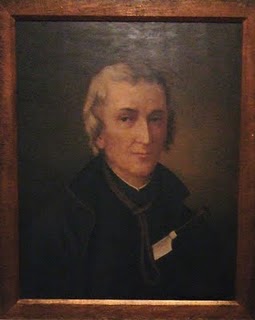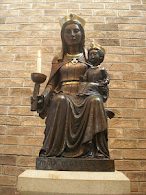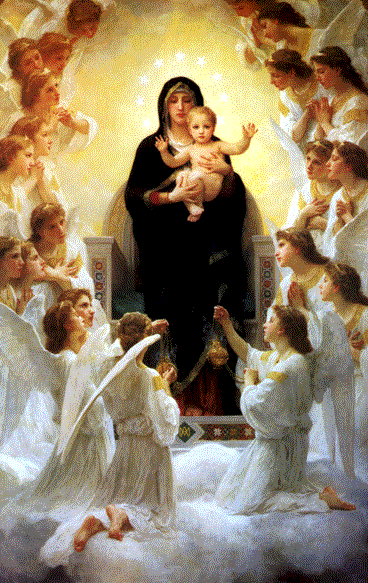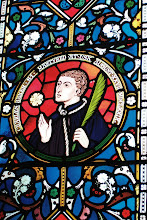
This year, the month of October is special for Sisters of St Joseph around the world. They are celebrating the 400th anniversary of the birth of their founder, Jean Pierre Médaille. Jean Pierre Médaille was born in Carcassonne in the south-west of France. According to the parish registers, Jean Pierre was born on 6th October 1610, to Phelippe and Jean Médaille. Jean Pierre was the eldest of three brothers. Jean Pierre was not quite sixteen when, on 15th September 1626, he entered the Jesuit Novitiate at Toulouse. While studying humanities and philosophy here in 1629, Jean Pierre became acquainted with a fellow student, Fr Francis Regis, who had been sent to the College in 1628. Fr Regis is better known to us today as the great Jesuit saint, Saint John Francis Regis. In 1637, at the age of 27, Jean Pierre was ordained priest. He was assigned to the Jesuit College in Aurillac as assistant to the rector.
In 1642, Fr Médaille returned to Toulouse for his final formal period of formation. A colleague at that time was Fr Noël Chabanel. At the end of this year of formation, Fr Chabanel was sent on mission to Canada where he was martyred in 1649. The youngest of the Canadian Martyrs, Fr Noël Chabanel was canonised in 1930.
About 1646 Fr Médaille formed an association of six women which was called the ‘Little Design’. This group of women, filled with love of God and neighbour, was dedicated to working for the disadvantaged and neglected. The group officially became known as the Congregation of the Sisters of St Joseph in 1650. On 15th October of that year the Bishop of LePuy gave them canonical status.
In 1642, Fr Médaille returned to Toulouse for his final formal period of formation. A colleague at that time was Fr Noël Chabanel. At the end of this year of formation, Fr Chabanel was sent on mission to Canada where he was martyred in 1649. The youngest of the Canadian Martyrs, Fr Noël Chabanel was canonised in 1930.
About 1646 Fr Médaille formed an association of six women which was called the ‘Little Design’. This group of women, filled with love of God and neighbour, was dedicated to working for the disadvantaged and neglected. The group officially became known as the Congregation of the Sisters of St Joseph in 1650. On 15th October of that year the Bishop of LePuy gave them canonical status.
The French Revolution dealt a blow to the rapidly growing congregation. The sisters were dispersed, some were imprisoned and some even executed. However, in 1808 Mother St John Fontbonne, who had narrowly escaped execution, began the re-formation of the Sisters of St Joseph. The sisters became know by the Diocese in which they reformed and in 1833 the groups in Annecy Diocese joined with the Sisters from Pignerol, Italy. They became known as the Sisters of St Joseph of Annecy. The Sisters of St Joseph of Annecy came to Wiltshire, England in 1864. From there they spread throughout the country.
In 1946 the Sisters of St Joseph of Annecy moved to Llantarnam Abbey, Cwmbran. Llantarnam Abbey was the site of a Cistercian Abbey which was suppressed during the dissolution of the monasteries by King Henry VIII and his lackey, Thomas Cromwell. It eventually came into the ownership of the wealthy Morgan Family. Generations of the Morgans were Catholic and, despite the severe Penal Laws against Catholics, they maintained a chapel in their home where Catholics of the area could attend Mass. The Morgans were instrumental in establishing the Jesuit College of St Francis Xavier at the Cwm, Hereford. One of the Superiors of the College was Fr David Lewis.
Fr Lewis was born in Abergavenny in 1616. A Protestant, he converted to Catholicism and, in 1642, he was ordained priest. Following his uncle, John Pritchard, he joined the Jesuits in Rome and was sent on the English Mission in 1647. Except for a brief period in Rome, Fr David Lewis spent the remainder of his life ministering to the persecuted Catholics of Monmouthshire and surrounding area.
Lady Frances Morgan was an aunt of Fr David Lewis. For a time Fr Lewis lived at Llantarnam with his relatives and regularly celebrated Mass in the chapel there. From this base he administered the Sacraments and tended to the needs of the Catholics. During the alarm caused by the false Oates Plot, Fr Lewis wished to protect his relatives from danger so he moved to a cottage opposite.
One Sunday morning, 17th November 1678, Fr Lewis was preparing to celebrate Holy Mass. A group of armed dragoons arrived and arrested the priest. After months in prison, the Jesuit was tried and convicted of being a Catholic priest and celebrating Mass. This was deemed High Treason so Fr Lewis was sentenced to be hanged, drawn and quartered, the usual sentence for High Treason. On 27th August 1679, Fr David Lewis S J was martyred at Usk. His remains were interred in the churchyard of the priory Church at Usk. On 25th October 1970, David Lewis was canonised as one of the Forty Martyrs of England and Wales.
The Sisters at Llantarnam Abbey have continued to honour his memory and a portrait of the Saint who once lived there hangs in the hallway. Several years ago one of the Sisters from the Abbey founded a group, Friends of Saint David Lewis, which aims to spread devotion to St David Lewis. This Sister was also the driving force behind the installation of a plaque at the Old Post Office, Llantarnam, Cwmbran. The plaque marks the site of the arrest of St David Lewis.
Fr Jean Pierre Médaille died in the College of Billom on 30th December 1669. He was 59 years old. Fr Médaille could never have imagined the far reaching consequences of his work with that little band of women. The ripples have spread out to embrace the world and the good work started by Fr Medaille continues today through the dedicated and outstanding Sisters of St Joseph.








.JPG)

.JPG)






What a world of connections! The Sisters of St. Joseph of Medaille are the congregation Sr. Helen Prejean belongs to. She has done such tremendously great work!
ReplyDeleteHello Sr Ann Marie
ReplyDeleteLovely to hear from you. I am always amazed at how events, people, actions, etc, reverberate and echo through time and over oceans and continents to touch our lives today.
I only got to know the Sisters of St Joseph since coming to live in Wales. Fr Medaille would be very proud of them, I am sure. They are a wonderful group of women and I feel proud to know them. Of course, you Franciscans are pretty wonderful too!
Thanks Sister and God bless you.